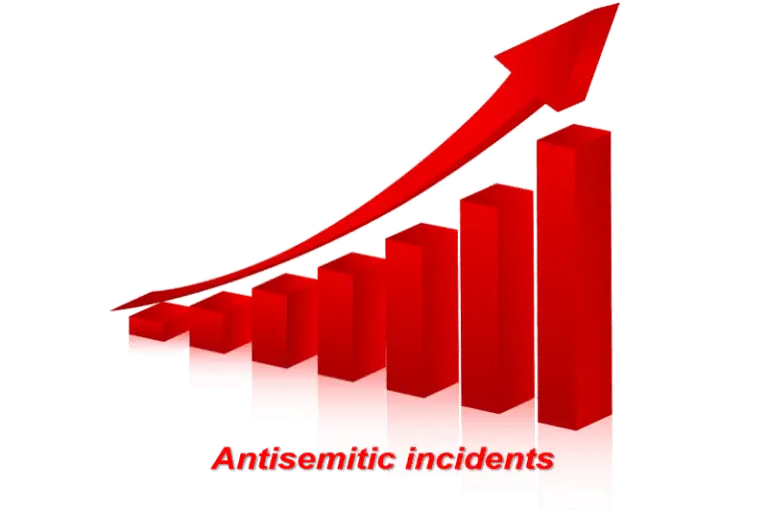For the fifth consecutive year, the Web Observatory presented its annual Report on Antisemitism on the Internet , in which it analyzed the place that religious hate speech had in the main social networks during 2022 and based on which it undertakes its transnational work in pursuit of achieving strategies to eradicate these expressions.
The document included data from around the world belonging to the Google search engine , the YouTube video platform and the Twitter and Facebook networks . On the other hand, it included portal forums and digital media from seven countries of the American continent.
In this edition, in line with the global technological trend, the agency used artificial intelligence tools to analyze more than seven and a half million posts and online content in Spanish, such as tweets, comments, videos, and search results.
At a general level, Claudio Epelman, executive director of the Latin American Jewish Congress, pointed out that “the level of antisemitism remains the same in all the countries analyzed in the report, discounting small variations.”
However, he explained that these actions in Latin America ” have their particularities , it is different from that of Europe and other parts of the world” and, therefore, it is important to know their specific forms that allow “addressing the phenomenon at a regional level, developing consistent approaches and avoid importing conflicts from other altitudes”.
Next, when it comes to specific online platforms, the report highlighted the performance of Google, which posted its best result in eight years. In 2022, the search engine achieved an increase in positive Jewish content as well as a slight decrease in negative.
This relationship translates into 75.28% of positive searches against 3.89% antisemitic while, in 2021, they had been 67.64% and 4.86% respectively.
It should also be noted that it was the year with the greatest positive content since the previous record had been 71.53% in 2019.
However, YouTube presented a completely different scenario: it was the first time in five years that the amount of antisemitic content increased , thus breaking the pronounced downward trend of previous periods.
Although the increase was not significant, experts from the organization explained that any increase is important since it shows that users and content creators have found ways to circumvent the controls imposed with the implementation of moderation policies.
They added, on the other hand, that one of the main terms associated with the antisemitic material analyzed was “Zionism”.
In numbers, 63.96% of the videos had positive content and 12.29% , antisemitic , while in 2021 the figures had been 65.83% and 9.58% respectively. In any case, the year with the worst performance was 2018, when hate content constituted 22.50% of the offer on the platform.
In the case of Twitter , the metrics revealed that one in ten tweets were related to antisemitic Jewish themes . 80.95 % had virulent anti-Zionist terms, 5.04% pointed against the Holocaust and 1.79% combined both issues .
Likewise, almost 50% contained a critical position towards Israel or the Jewish world .
In the case of this network, it could be considered that the moderation policies had, however, some success since none of these publications reported a great reach.
On the other hand, in 2022 the negative contents remained homogeneous throughout the year, unlike in 2021 when a peak was recorded in May. This, according to experts, is due to events on the international agenda, which open spaces for debate and expression for people online, as well as social events, such as the controversial performance of Roger Waters in Germany , which generated a wave of rejections all over the world.
In this sense, Facebook registered a similar scenario in September when almost a third of the negative comments were concentrated on the platform, shortly after Chilean President Gabriel Boric denied receiving the credentials of the new Israeli ambassador in Santiago.
Lastly, the document contemplated the publications in portal forums and digital media in Argentina , Brazil , Chile , Colombia , Costa Rica , Panama and Uruguay , where no great differences were observed with previous years.
In 2022, a third of the comments there were positive ; another third, negative and antisemitic ; and the rest, against the government of the day, which shows that these are not major centers of hate concentration .
Even in the interannual analysis, antisemitism remained six points below the average of the last eight years.
At the end of the analysis, Ariel Seidler, director of the Observatory, made a special mention of the irruption by leaps and bounds of artificial intelligence and pointed out that he looks ” carefully at how the development of this type of technology can affect life in democracy , particularly in regarding the proliferation of hate speech on social networks, specifically through the famous ‘ bots ‘”.



:quality(85)/cloudfront-us-east-1.images.arcpublishing.com/infobae/VOLQWUGM3JAPTPTN6C2H3ZE6UA.png)
:quality(85)/cloudfront-us-east-1.images.arcpublishing.com/infobae/WTUBGYJ4G5EPNAFTBWW37CDRTQ.png)
:quality(85)/cloudfront-us-east-1.images.arcpublishing.com/infobae/CWX2JTMSLNBDRH6WSQF6OAROSE.png)



